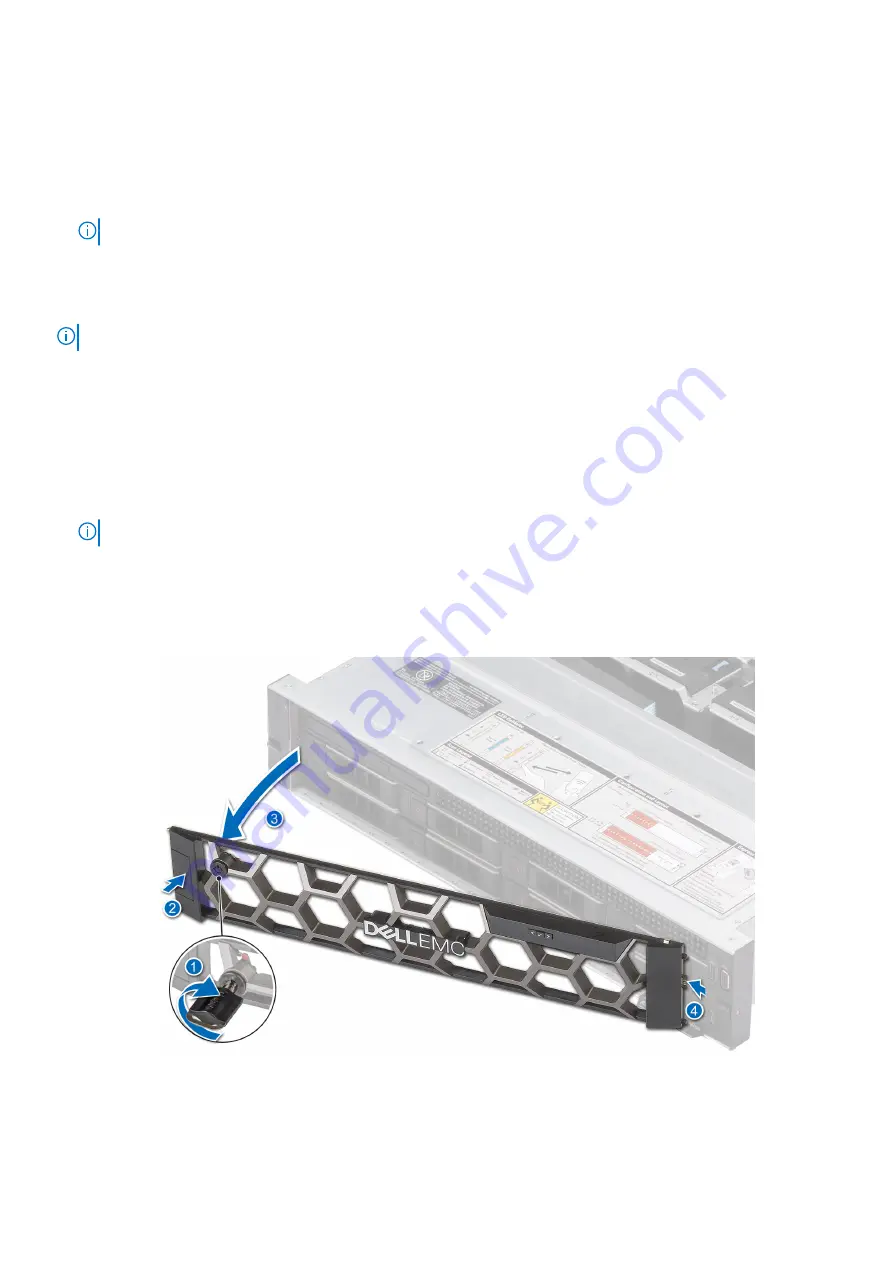
●
Wrist grounding strap connected to the ground
●
ESD mat
You need the following tools to assemble the cables for a DC power supply unit:
●
AMP 90871-1 hand-crimping tool or equivalent
●
Tyco Electronics 58433-3 or equivalent
●
Wire-stripper pliers to remove insulation from size 10 AWG solid or stranded, insulated copper wire
NOTE:
Use alpha wire part number 3080 or equivalent (65/30 stranding).
Optional front bezel
NOTE:
LCD panel is optional on the front bezel. If the front bezel has an LCD panel, see
Removing the front bezel
The procedure to remove the front bezel with and without the LCD panel is the same.
Prerequisites
1. Follow the safety guidelines listed in the
.
2. Keep the bezel key handy.
NOTE:
The bezel key is part of the LCD bezel package.
Steps
1. Unlock the front bezel.
2. Press the release button, and disengage the left end of the bezel.
3. Unhook the right end, and remove the bezel.
Figure 18. Removing the front bezel with the LCD panel
30
Installing and removing system components
Summary of Contents for EMC PowerEdge R550
Page 16: ...Figure 10 Service information 16 System overview ...
Page 17: ...Figure 11 Service information System overview 17 ...
Page 18: ...Figure 12 Memory information Figure 13 Configuration and layout 18 System overview ...
Page 19: ...Figure 14 Configuration and layout Figure 15 LED behavior System overview 19 ...














































